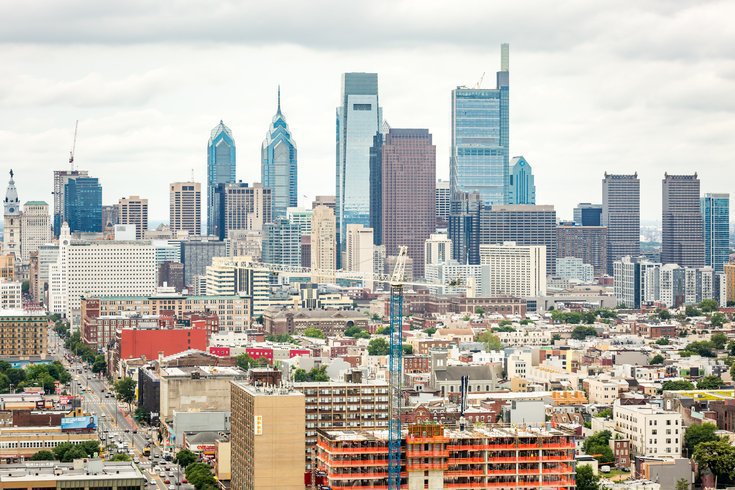
November 17, 2021
 Thom Carroll/for PhillyVoice
Thom Carroll/for PhillyVoice
COVID-19 cases in Philadelphia and the surrounding region have increased during November, a trend that has been seen across much of the United States and may be a sign of another winter surge approaching.
COVID-19 cases in Philadelphia and the surrounding suburbs have increased throughout November, prompting concerns about Thanksgiving gatherings, high case rates among teenagers and low vaccination rates among young children.
The rise in cases mirrors a national trend that may point to another winter surge. Across the country, new cases have risen to about 83,000 per day, a 14% increase from last week and a 12% increase from two weeks ago. Most of the U.S. had seen a decline in cases between mid-September and mid-October following the summer surge caused by the delta variant.
In the past two weeks, 2,351 Philadelphia residents have been diagnosed with COVID-19. The city is averaging 231 new cases per day with a test positivity rate of 3% as of Tuesday.
"With cooler weather upon us and Thanksgiving in less than two weeks, this is very concerning," Health Commissioner Dr. Cheryl Bettigole said Wednesday.
Bettigole said families should consider having smaller gatherings, adding that unvaccinated people could take a rapid test beforehand to reduce the risk of viral spread. She also encouraged eligible people to get booster shots.
Though the current figures are well below the peaks seen at other points during the pandemic, last winter proved to be an especially infectious and deadly stretch before vaccines became widely available. About 60% of Americans are now fully vaccinated and 69% have received at least one dose of a COVID-19 vaccine.
Bettigole said a decrease in mask use in Philadelphia is partly to blame for the rise in cases alongside the arrival of cold weather.
"I know everyone wants to talk about when we're going to get rid of masks, but this is not the time," Bettigole said.
The health department continues to have internal conversations about when rolling back the mask mandate might make sense in terms of case counts and hospitalizations. But Bettigole doesn't see that happening soon, given that cases are rising as the winter approaches.
"I think it's going to be a while," Bettigole said.
Most transmission continues to take place in homes, according to contact tracing data, and a large share of the cases being detected are among children and teenagers ages 10-19 who are not yet vaccinated. The health department also is seeing higher numbers of people in their 30s and young children testing positive.
Bettigole said she is still encouraged by Philadelphia's relatively high rate of vaccination.
At least 91.2% of adults and 84.5% of children 12 and up have received at least one COVID-19 vaccine dose, while 74% of adults and 68.5% of children 12 and up are fully vaccinated. And 106,000 Philadelphia residents have received a COVID-19 booster shot.
Just 4.8% of children ages 5-11 in Philadelphia have received a COVID-19 vaccine dose since this group became eligible earlier this month. That's about 6,400 children, most of whom received the vaccine at a pharmacy.
As the U.S. Food and Drug Administration weighs a decision on whether to recommend booster shots for all adults — possibly as soon as this week — Bettigole said Philadelphia will adjust guidelines accordingly. She emphasized that the current guidelines recommended booster shots not just for older individuals and people with high-risk conditions, but also those who are overweight with a body mass index of 25 or higher.
"Most adults in our city have a BMI of 25 or more," Bettigole said.
With a possible surge in cases coming in the next few months, Bettigole urged more people to get booster shots.
"We aren't quite at the 'everybody gets a booster' (stage) yet, but anybody with any indication — which is almost all of us, at this point — get that booster," Bettigole said. "It makes you not only less likely to get sick, but less likely to pass this. And we want to interrupt that spread so that we can move forward after this."